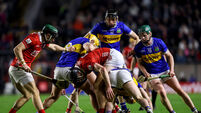Australian voters face stark choice on Iraq
Australian Prime Minister John Howard gave his last nationally televised campaign speech today as he bids for a fourth three-year term. He didn’t mention Iraq once.
But as soon as he stopped speaking, reporters started firing questions at him about a report by Charles Duelfer, the head of the US Iraq Survey Group, which said Saddam Hussein’s weapons of mass destruction program was made up of hopes and dreams by the time of the US-led invasion last year.














